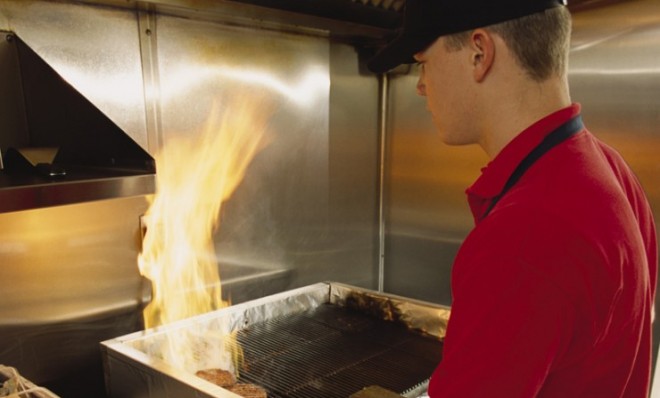How would raising the minimum wage affect the economy?
President Obama wants the minimum wage raised from $7.25 to $9 an hour

A free daily email with the biggest news stories of the day – and the best features from TheWeek.com
You are now subscribed
Your newsletter sign-up was successful
President Obama's push to raise the minimum wage is a recipe for fewer jobs, says Edward Morrissey in The Fiscal Times. "It's true that minimum-wage earners don't get a lot of money," but that's because they're usually young people in entry-level positions earning starting wages. Raising the federal minimum wage from $7.25 to $9 an hour, as Obama proposes, does nothing to make these workers "more valuable on the job market." Instead, it puts small businesses in an unacceptable bind that helps no one. To cover the higher costs of staffing entry-level jobs, they'd either have to raise prices, which is bad for consumers, or cut back on new hires, giving fewer younger workers "a good chance to earn their stripes." A higher minimum wage makes sense to restore the balance of a booming economy, say Jens Laurson and George Pieler in Forbes, but in a struggling economy — when higher hiring costs kill jobs — that equilibrium point "is always lower."
Let's look at some facts, says John Cassidy at The New Yorker. The minimum wage isn't just for "high school kids working at McDonald's on weekends for beer money." A study published last summer found that nearly nine of 10 workers who would benefit from an increased minimum wage were at least 20 years old. More than half of them worked full time, over a third were married, and more than a quarter were parents. Let's remember that in inflation-adjusted terms, today's minimum wage is "$3.30 less than it was in 1968." And the data simply don't reveal a significant link between minimum wage and the unemployment rate. "Faced with a rise in their wage bills, some employers may choose to employ fewer workers." But that doesn't happen nearly as often as many "neoclassical economists" would have you believe.
It's natural for businesses to want to minimize their labor costs, says Daniel Gross at The Daily Beast. And "there's no doubt that a higher minimum wage would create an immediate drag on earnings and create pressures for higher prices." But there's a flip side that makes a higher minimum wage attractive to businesses, too. Many low-paying American companies, such as Walmart and McDonald's, "make a good chunk of their money peddling goods and services to those on the lower rungs of the income ladder." Since low-income workers tend to spend more of what they make, a higher minimum wage would put more purchasing power in the pockets of these companies' customers. "Wages don't trickle down. They trickle up."
The Week
Escape your echo chamber. Get the facts behind the news, plus analysis from multiple perspectives.

Sign up for The Week's Free Newsletters
From our morning news briefing to a weekly Good News Newsletter, get the best of The Week delivered directly to your inbox.
From our morning news briefing to a weekly Good News Newsletter, get the best of The Week delivered directly to your inbox.
A free daily email with the biggest news stories of the day – and the best features from TheWeek.com
Sergio Hernandez is business editor of The Week's print edition. He has previously worked for The Daily, ProPublica, the Village Voice, and Gawker.
-
 The environmental cost of GLP-1s
The environmental cost of GLP-1sThe explainer Producing the drugs is a dirty process
-
 Nuuk becomes ground zero for Greenland’s diplomatic straits
Nuuk becomes ground zero for Greenland’s diplomatic straitsIN THE SPOTLIGHT A flurry of new consular activity in Nuuk shows how important Greenland has become to Europeans’ anxiety about American imperialism
-
 ‘This is something that happens all too often’
‘This is something that happens all too often’Instant Opinion Opinion, comment and editorials of the day